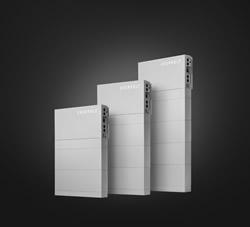First Micro Fuel Cell Commercial Product To Appear in 2004, says ABI
Micro fuel cell markets will see their first commercial products in 2004, according to a recent study by research firm Allied Business Intelligence (ABI). Micro fuel cells (MFCs) for consumer electronics will soon be observed in products ranging from wireless handsets to notebook computers to video cameras/camcorders. ABI's study, "Micro Fuel Cell End User Markets," predicts that MFC unit shipments will reach as many as 200 million worldwide by 2011.
Micro fuel cell markets will see their first commercial products in 2004, according to a recent study by research firm Allied Business Intelligence (ABI). Micro fuel cells (MFCs) for consumer electronics will soon be observed in products ranging from wireless handsets to notebook computers to video cameras/camcorders. ABI's study, "Micro Fuel Cell End User Markets," predicts that MFC unit shipments will reach as many as 200 million worldwide by 2011.
More and more companies are spending on research in order to bring the first commercial product to the market. Large companies like Toshiba, Samsung, Motorola, and NEC, as well as smaller startups like MTI Micro, Medis, Polyfuel, Neah Power, Smart Fuel Cell, and Jadoo Power, have all been working on micro fuel cell technology.
Although rechargeable batteries have seen improved energy densities, they have not satisfied the energy demands of high-end manufacturers. Cellphones, laptops, digital cameras, smartphones, and PDAs all require higher energy density power supplies, which are already a burden on batteries. Micro fuel cells could fill the missing link, as the increasing functionalities of these devices boost their energy density demand.
"The majority of the companies work with methanol as a fuel choice, while some work with ethanol," explains Atakan Ozbek, ABI Director of Energy Research and author of the study. "The important issue in the near term is to start delivering their working products to OEMs in accompanying end-use market applications."
"Another important aspect that most MFC developers still seem to be unaware of is the complexity of possible government regulations," continues Ozbek. "The benefits of a longer battery life are a boon for technology products; however, it may take anywhere from 6 months to 2 years to get codes and standards from the Department of Transportation and Federal Aviation Administration, that will allow their working commercial products on board aircraft, which is a must-have for MFCs."
ABI's micro fuel cell study assesses the last technical hurdles ahead of commercial distribution of MFCs, along with critical elements of regulatory and business issues in major regions from North America to Japan. The study assesses the comparative market potential of important end-use markets, and provides growth projections by market and by region through 2011.
Allied Business Intelligence Inc. is an Oyster Bay, N.Y.-based technology research think tank and consultancy founded in 1990. ABI publishes research and technology intelligence on the wireless, automotive, electronics, networking and energy industries. Details can be found on the web at www.alliedworld.com or by calling 516-624-3113.
Featured Product

